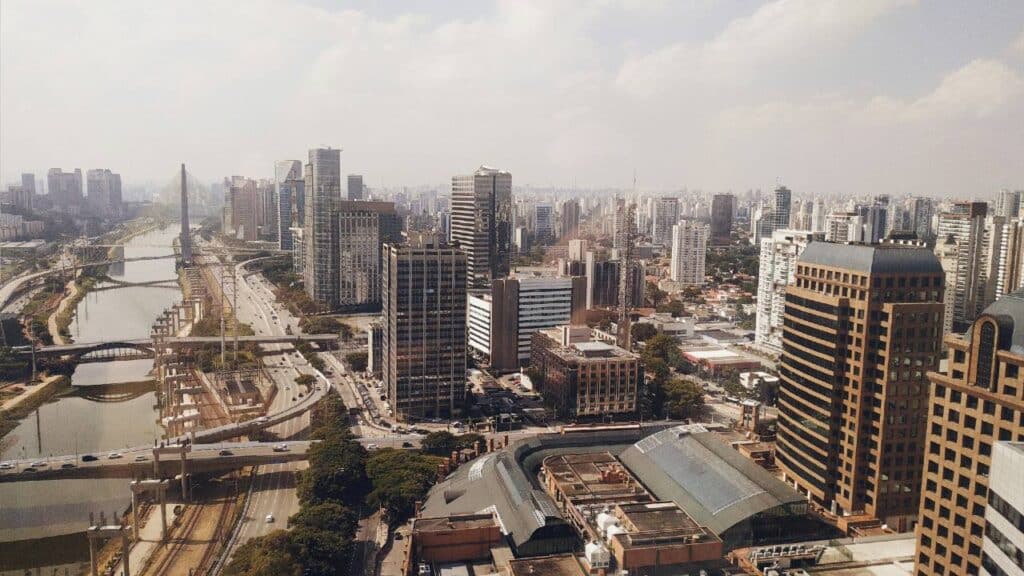What happens in Washington has significant repercussions in Brasilia
The volatility of the Brazilian capital market is a natural consequence of its dependence on external factors. Global dynamics directly influence investments, making it essential for companies and investors to understand these impacts and adopt strategies to mitigate risks and seize opportunities in an environment of increasing economic complexity.
One of the main factors contributing to this sensitivity is the significant presence of foreign investors in the country. Foreign investors have increased their share of the financial volume traded on Brazil’s main stock exchange (Brasil Bolsa Balcão, or B3) in 2024, reaching 55.8 percent, the highest level since 2019. Undoubtedly, foreign investment flows are one of the main barometers of the Brazilian financial market, and their movements reflect both domestic factors and global trends.
In periods of global instability, these investors tend to reduce their exposure to emerging markets, leading to capital outflows and pressuring stock prices and market liquidity. Moreover, Brazil’s economy is largely based on the export of commodities, such as food, iron ore and oil. The prices of these products are determined in the international market by changes in global demand and can be affected by trade policies of major world economic powers.

Another relevant aspect is the influence of interest rates and exchange rates, as when the US Federal Reserve raises interest rates, US assets become more attractive, encouraging capital migration to developed economies and depreciating the Brazilian real. This depreciation increases the cost of importing inputs and raises financing costs for Brazilian companies, reducing their investment capacity.
The Brazilian capital market, already sensitive to external variables, faces another significant challenge: the impact of new tariffs imposed by the US. The increase in trade barriers may initially seem like a sectoral or geopolitical issue, but its consequences reverberate directly on Brazil’s attractiveness to global investors and the dynamics of Brazilian assets listed on stock exchanges, both in Brazil and abroad.
The depreciation of the Brazilian currency generates a dual impact: on one hand, it may increase the competitiveness of exports, but on the other, it pressures import costs, driving up inflation and forcing the Central Bank to maintain a more restrictive monetary policy. The result? Higher interest rates for a longer period, reducing risk appetite and making the cost of capital higher for listed companies.
Another crucial impact of American tariffs is on foreign investment flows. During periods of trade uncertainty, international investors tend to reduce their exposure to emerging markets, seeking safety in dollar-denominated assets like US Treasuries. This capital flight can further pressure the Brazilian stock market, reducing liquidity and increasing volatility.
US tariffs are generally a challenge for the Brazilian economy, but in certain contexts they can also generate positive effects for the country’s capital market. These trade barriers can redirect investments, boost strategic sectors and attract foreign capital, creating opportunities for companies listed on B3.
One of the main positive effects is the redirection of investments, as global companies facing restrictions in the US may seek alternative suppliers, benefiting Brazil, particularly in the agricultural and industrial sectors. This movement could increase demand for Brazilian products and strengthen export-oriented companies, improving their financial performance and driving up their stock prices.
Additionally, tariffs imposed on major global producers, such as China, Canada and Mexico, may reduce the supply of certain commodities, raising their prices in the international market. Brazil, as one of the largest exporters of agricultural products and minerals, could benefit from this price increase, leading to higher profitability for companies in these sectors and greater attractiveness for investors, as long as there is no additional tax burden on goods imported into the US.
Trade diversification also emerges as a natural response to US tariffs as Brazil may intensify partnerships with alternative markets, such as Europe, Asia and the Middle East, reducing its reliance on exports to the US. This strategy could expand opportunities for Brazilian companies, strengthening their position in global trade and ensuring greater long-term stability.
In a scenario of stricter tariffs and commercial instability, the perception of risk regarding Brazil may intensify, which could consequently hinder IPOs, follow-on offerings and even M&A operations. Companies seeking to raise funds in capital markets will need to strengthen their governance and transparency strategies to attract investors in a more selective environment.
Considering this challenging scenario, the key word for Brazilian companies is diversification: both in the geography of exports and in the composition of funding sources. Seeking alternative markets and expanding presence in regions such as Asia and Europe can be a smart strategy to reduce dependence on the US. In the capital market context, robust communication with investors and the adoption of ESG practices can become competitive differentiators in times of increased risk aversion.
The impact of US tariffs on the Brazilian capital market is a reminder that in a globalized world, political and commercial decisions transcend borders. A keen investor knows that periods of uncertainty bring risks but also opportunities – for those who position themselves strategically, adjusting their portfolios and fundraising strategies correspondingly. Brazil, with its dynamic market and adaptability, is well-positioned to mitigate these impacts and continue attracting capital. The key lies in predictability, governance and agility in responding to the new scenario.
Indeed, the Brazilian market is reshaping as a consequence of the new dynamics of the global economic and geopolitical landscape. Although US protectionism may represent challenges for some sectors and countries, it may also create strategic opportunities for Brazil. The ultimate impact will depend on Brazil’s and its companies’ ability to adapt to the new global scenario, leveraging shifts in trade and investment flows to strengthen the economy and financial market.
André Vasconcellos is a member of IR Impact’s editorial board and chief strategy and investor relations officer at Fictor Alimentos






